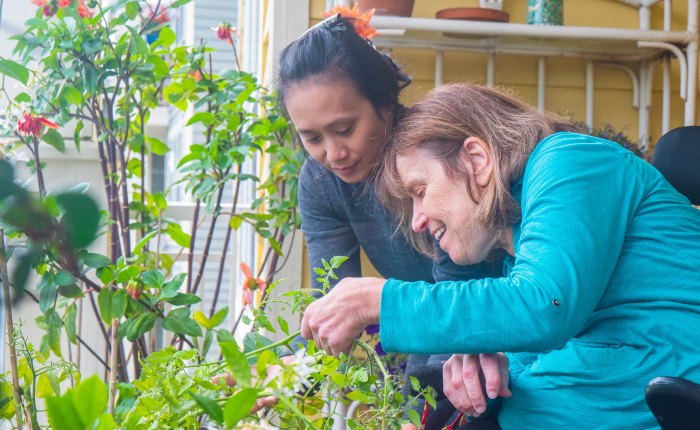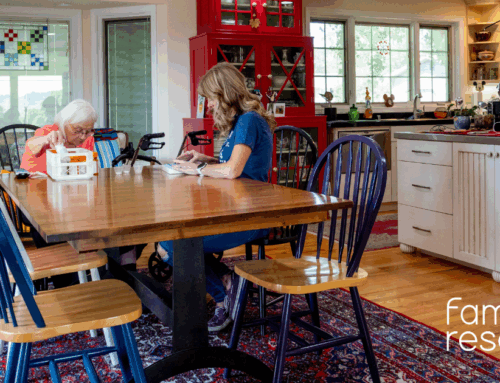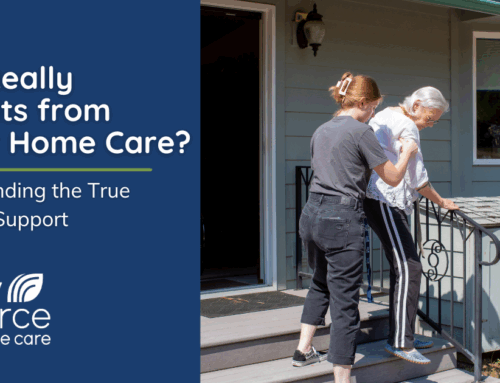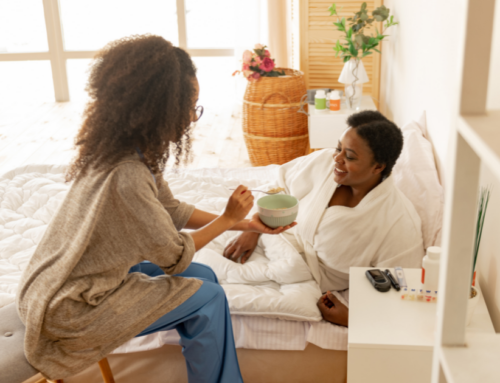2020 has been a year of chaos so far. We are seeing a plethora of changes to our daily lives, from how and where we are working, to how and where our kids are getting their educations, and so much more. For most of us, the changes have been manageable and (we hope) temporary, but that roller coaster we are all on can still cause upheaval to our mental, spiritual, emotional, and physical health.
Your gym shut down, and now you can’t attend your yoga classes, or your water aerobics, or use the convenient workout equipment. Your therapist had to reduce their availability to accommodate working from home and balancing their own childcare, and you can’t manage to schedule a time for a Zoom meeting that both of you can fit into your ever-evolving schedules. Your social circle has become non-existent because everyone has been busy trying to figure out the “new normal”, in addition to there being nowhere to go because everything has been shut down. Your church services are available online, but you miss the in-person social aspect of gathering every Sunday. Your established routine has been severely impacted, and you are feeling pretty down. My dad used to call it “feeling blue”.
Now ask yourself, how might the concept and protocol of a pandemic be different for those living with dementia? For those of us caring for individuals with those challenges, how can we help?
Teepa Snow is an occupational therapist who specializes in dementia care and dementia education. She has a private practice called Positive Approach to Care that allows her to train, speak, and consult nationally. We were recently invited to attend a webinar that she was hosting called The Effects of Social Isolation on Those Living with Dementia. The hour-long webinar was chock full of information relevant not only to our current situation with the pandemic, but applicable to people living with dementia every day, even when things are “normal”.
Teepa believes that “rewiring our own perceptions, attitudes, communication strategies, actions, and responses provides the shift that promotes change for the others around us.” Using the phrase neurodegenerative change rather than dementia is one example of how Teepa is working to shift the paradigm of preconceived ideas surrounding dementia.
The phrase that hit home the hardest for me was when Teepa said “if you are caring for someone living with dementia, then you are living with dementia, too”. My perspective on dementia immediately shifted with those simple words and the lens through which I view that world became significantly clearer.
Living with neurodegenerative changes is challenging, to say the least, and those challenges inherently shift to the people who are providing care for someone living with dementia (LWD). Throw a pandemic into the mix, and those challenges can increase considerably.
By now, we have all probably seen those sweet video clips floating around the internet that showcase elderly people confined to facilities because of the COVID-19 quarantine, and family members get creative in order to visit and spend time with their loved ones who are inside. People have set up chairs outside windows so their person can see them, and used the phone to communicate with their person, or they enlist the help of a staff member to assist their loved one with a FaceTime or Zoom call so the resident can see their family.
These simple acts can greatly affect the life of a person LWD. When isolated, we are all at risk for detrimental changes if we aren’t careful. For someone LWD, they more than likely wouldn’t be aware of these changes any more than they might be aware of what day it is. Sitting in a chair hour by hour, and day by day, will ultimately lead to a decline in not only physical abilities but social and emotional as well. The isolation process brings with it a lack of social engagement and the risk of losing more language and conversational abilities.
We’ve all heard the phrase “If you don’t use it, you lose it”, and this couldn’t be more true than in the case of someone with neurodegenerative changes. Even when we aren’t living in the midst of a pandemic, our elderly and vulnerable populations are at risk for social isolation. So how can we, as people who are caring for those living with these changes, best help them to maintain their skills and abilities?
Address what they have left—meet them where they are. Again, a phrase that is heard quite often in geriatric care. For those LWD, the rhythm section of the brain is often the last to be affected by neurodegenerative changes, which is why music, poetry, prayer, and counting are some of the longest-preserved abilities. Look for activities like listening to music from your person’s youth, or reciting poetry or prayer. These rhythm-based pastimes can evoke memories and magic for your loved one.
When talking is not working, showing can lead to talking. For someone LWD, conversations can be limited due to decreasing communication skills. Get creative in your approach and learn how to incorporate gestures and body language. Gestures are strong signals to the primitive part of our brain—your person LWD will very likely respond better to you when you are holding a coffee cup up, pointing to it and simulating drinking while asking, “coffee?” than they might if you just said the word “coffee?” Teepa’s suggestion is to engage for five minutes, because a little bit of time is enough to light up the brain and fire those synapses for a moment of pleasure. After five minutes, if the person you are caring for isn’t responding positively to your attempts to communicate, then give yourself permission to just say “thank you for letting me spend time with you” and give both of you a break. Then you can go back to that proverbial drawing board, and ask yourself, “ok—what’s another little thing that we can do?”
For someone living with neurodegenerative changes, their world is already becoming smaller just by nature of the abilities they are losing. When you add social isolation on top of an already narrow world, that process can speed up exponentially. Teepa says things don’t need to be big to be valuable. Five minutes of interaction and pleasure is absolutely priceless and can help maintain the functions that your person has left. Meet them where they are at and address what they have left.
We don’t have to “go big or go home” when it comes to effective interactions with people LWD. That can be exhausting and frustrating for everyone involved. Go back to the basics and keep things simple in your communication with your person LWD. Play music, sing silly songs, recite prayer and poetry, count to twenty and back — short and sweet! Sort through a rainbow of crayons, rip a piece of paper into shapes, fold the same towel ten times in a row. Give yourself permission to enjoy those little moments with your person, for they are beneficial beyond measure for both you and the person you are caring for. Success!
See our Alzheimer’s & Dementia specialized services!






